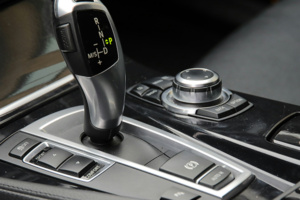The Pros and Cons of Automatic Transmissions
The Pros and Cons of Automatic Transmissions: Is It Right for You?
The choice between manual and automatic transmissions has been a long-standing debate among drivers. Once considered a luxury, automatic transmissions have become increasingly prevalent in modern vehicles. However, like any automotive feature, they come with their set of advantages and drawbacks. Let’s explore the pros and cons of automatic transmissions to help you decide whether it’s the right choice for your driving preferences.

Pros of Automatic Transmissions:
Ease of Use:
Automatic transmissions are known for their user-friendly nature. With no need for manual gear shifting, drivers can focus more on the road, making them an excellent choice for those who prefer a less involved driving experience.
Convenience in Traffic:
Stop-and-go traffic can be a hassle with a manual transmission, requiring constant shifting between gears. Automatic transmissions excel in such conditions, offering seamless transitions between gears without driver intervention.
Reduced Learning Curve:
Learning to drive with an automatic transmission is generally simpler than mastering a manual gearbox. This makes automatics an attractive option for new drivers or those who prefer a more straightforward learning process.
Growing Technological Advancements:
Modern automatic transmissions often have advanced features such as adaptive shifting, hill start assist, and sport mode. These technologies contribute to a more refined and customizable driving experience.
Resale Value:
Automatic transmissions have become the norm in many markets, potentially increasing the resale value of your vehicle. This is particularly true in regions where automatics are more popular or preferred.
Cons of Automatic Transmissions:
Cost and Maintenance:
Automatic transmissions are generally more expensive to manufacture and repair than manual transmissions. Additionally, maintenance costs can be higher, making them potentially costlier over the vehicle’s lifetime.
Fuel Efficiency:
Traditionally, manual transmissions were considered more fuel-efficient than automatics. While technological advancements have narrowed this gap, some drivers still prefer manuals for their perceived better fuel economy.
Less Control for Enthusiasts:
Driving enthusiasts often appreciate the control and engagement of a manual gearbox. Automatic transmissions, while convenient, may not provide the same level of involvement for those who enjoy the act of shifting gears themselves.
Towing Capacity:
In certain scenarios, manual transmissions offer better towing capabilities. If towing heavy loads is a regular part of your driving needs, a manual transmission might be a more suitable choice.
Initial Cost:
Vehicles equipped with automatic transmissions tend to have a higher initial cost than their manual counterparts. This upfront expense might be a consideration for budget-conscious buyers.
The decision between automatic and manual transmissions ultimately depends on your driving preferences, lifestyle, and priorities. Automatic transmissions provide convenience and ease of use, especially in urban environments, while manual transmissions appeal to those who seek a more hands-on, engaging driving experience. Consider your daily driving conditions, personal preferences, and budget to determine which transmission type best fits your needs.
Whatever type of transmission you get, we can help maintain it! [atc] Auto Center has been the CSRA’s transmission experts for over 50 years. Stop in with any transmission buying questions at any time!

